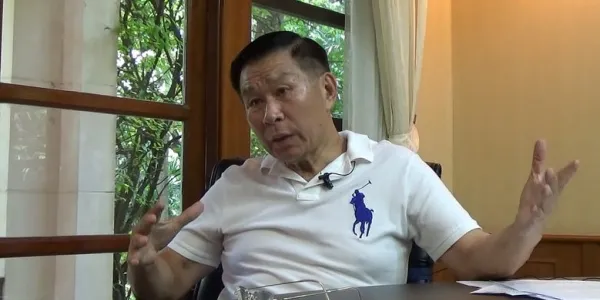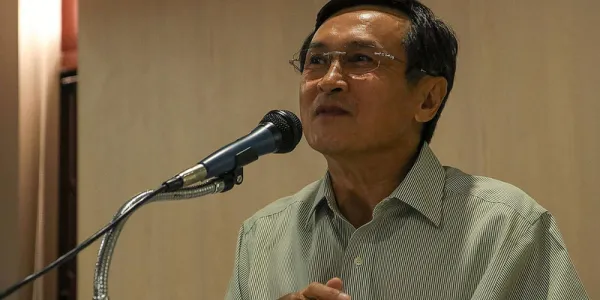<div>The Thai Liberal Party leader shares his vision of reforming the military by moving all troops out of Bangkok and instead using the space to build schools, hospitals and parks while abolishing unnecessary military units. </div>
<p></p>
<div>Although Pheu Thai is currently facing a multitude of challenges, Chaturon Chaisang believes that the party can overcome them, from institutionalizing the party to opening up the party to participation by the new generation. </div>
<p></p>
By Surapong Suebwonglee |
<div>When “people who want elections” come out and call for them as scheduled, some voices say: “even if we have elections, the same faces and the same political parties will bring back the same old problems.”</div>
<div> </div>
<div>With this discourse, I think from some angles, the people who say this want to lessen the credibility of elections and say they are not a solution to the problems we complain about. But from other angles, I understand the issues that make them think in such a way.
</div>
By Piyabutr Saengkanokkul |
<div><em>In the past week, news broke that Piyabutr Saengkanokkul, Assistant Professor at the Faculty of Law, Thammasat University and a member of Nitirat (a group of Thammasat law professors who offer academic legal advice to society), would take a step back from academia and into politics by founding a new political party with Thanathorn Juangroongruangkit.
</em></div>
By Kornkritch Somjittranukit |
<div>Red shirts-turned-royalists, anti-election leaders, “moral politics” supporters, an ex-junta official and an anti-lèse majesté academic have all revealed their intention to participate in the upcoming election. And this is just the beginning.</div>
<div> </div>
<div>2 February was the first day of registration for new political parties, with over 40 registered at the Election Commission of Thailand (ECT). But will these new parties lead to new choices for the people?
</div>


